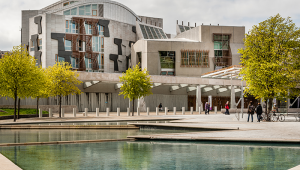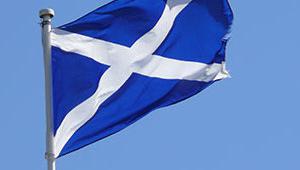In its latest economic commentary, the Fraser of Allander Institute set out a worst case scenario which could see “a significant contraction” in the Scottish economy in the second half of this year, with output falling by 5.5% from peak to trough.
“Whilst the immediate risk of a ‘no-deal’ outcome has been reduced, it remains a possibility at some point in 2019,” it said.
“To illustrate this, we have developed – like the Bank of England – a ‘worst’ case scenario of a disorderly Brexit. In this scenario, Scotland would enter a recession.”
However, the institute said that an appropriate policy response from the government and Bank of England would limit the damage of a no-deal Brexit, with output still contracting, but to a lesser degree, and picking up shortly afterwards.
It also modelled a more positive scenario under which uncertainty reduced and confidence returned, potentially if a Brexit deal were agreed.
“In this case, we think that growth could surprise on the upside, with growth of 1.7% in 2019,” it said.
The institute’s central forecast, based on an orderly departure at some point in 2019, predicts growth of 1.1% in 2019, 1.4% for 2020 and 1.5% for 2021.
However, it warned that lack of clarity over the terms of Brexit could leave the country in a state of continuing ambiguity.
“We said in our previous commentary that, whatever the outcome of Brexit, it was likely that critical elements may simply be fudged, or more openly deferred, leaving uncertainty for many more months, if not years,” it said.
“Unfortunately, nothing has happened in the interim to change that view.”
One consequence of the Brexit debate was that it had left little room for discussions of the emerging structural challenges and opportunities the Scottish economy was facing – a situation exacerbated by the decision to delay Brexit until October, the institute added.
Although the economy north of the border grew by 1.4% in 2018, driven by growth in manufacturing and services, average long-term growth figures were now at their lowest level since the early 1970s, it said.
The commentary also expressed concern over the emerging outlook for devolved income taxes in Scotland, where earnings growth lags behind the rest of the UK.
Although Scottish taxpayers are contributing £500m more in income tax than they would have been under the tax policy of the rest of the UK, the Scottish Government is likely to collect only £180m more in 2019-20, with the remainder being eaten up by weaker growth in the tax base, it said.
In addition, it was “increasingly likely” that income tax forecasts for the first two years of the tax’s devolution had been overoptimistic, meaning the Scottish Government could be forced to repay around £600m.
The analysis follows a warning from the institute earlier this year that sluggish wage growth, possibly related to the decline of the oil sector, could diminish the Scottish Government’s ability to fund public services.
Scotland's chief economist also warned in February that a no-deal Brexit could lead to a recession in the country.











